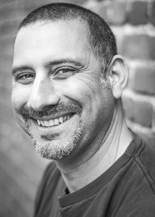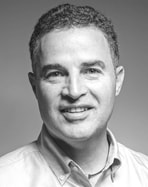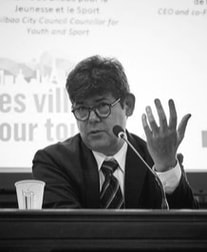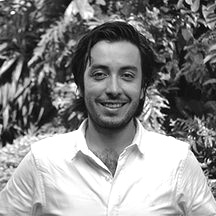Seminar content.
The Cities for Life seminar explored the transformation of Medellín, Colombia from one of the most dangerous cities in the world, to a model for equitable urban planning. Guests speakers and seminar participants discussed key components of the city’s transformation in areas of governance, public space, education, mobility, urban identity, and ecosystem recovery. The seminar focused on specific projects and processes that contributed to violence and poverty reduction, including an affordable and integrated transport system, increased spending on education and culture, alternative conflict resolution mechanisms, youth programs, and participatory forms of planning and budgeting. While the seminar focused on projects and programs considered successful in Medellín, it also explored key challenges and current planning priorities related to rapid urban growth, climate change and air quality, and continued socioeconomic and spatial inequity. The seminar ultimately revealed an imperfect story of a city that has reemerged out of a period of violence and trauma, one that offers valuable lessons for global cities but continues to grow and learn as it grapples with issues of inequality and poverty.
leadership.
Guest speakers.
Jorge Peréz Jaramillo
Former Director of City Planning, Medellín
|
Jorge Peréz Jaramillo is an architect and former City Planning Director of Medellín. He attended Universidad Pontificia Bolivariana (UPB) of Medellín, and later became Associate Professor and Dean of the Architecture Program. He was Deputy Planning Director for the Metropolitan Authority in Medellín between 2008 - 2014, and City Planning Director from 2012 - 2015, during which Medellín was awarded the Lee Kuan Yew World City Prize and named the Most Innovative City by Wall Street Journal and the Urban Land Institute, as well as winning the Holcim Global Award for Sustainable Architecture.
|
Magdalena Cerda
Vice Chancellor's Chair in Violence Prevention, UC Davis
|
Magdalena Cerdá is the Vice Chancellor’s Chair in Violence Prevention, and an Associate Professor in the Department of Emergency Medicine, at the University of California, Davis. Dr. Cerdá obtained her doctorate in Social Epidemiology from the Harvard School of Public Health and completed a postdoctoral fellowship through the Robert Wood Johnson Health and Society Scholars Program. In her research, Dr. Cerdá integrates approaches from social and psychiatric epidemiology to examine how social contexts shape violent behavior, substance use and common forms of mental illness. Her research focuses primarily on two areas: (1) the causes, consequences, and prevention of violence; and (2) the social and policy determinants of substance use from childhood to adulthood. Dr. Cerdá’s past research has focused on assessing the impact of the Metrocable and policy-initiated neighborhood change on neighborhood social conditions and levels of violence. In her guest talk, Dr.Cerdá will discuss the findings of her research and the impact of the built environment in violence reduction.
|
Diane Davis
Chair, Department of Urban Planning, Harvard Graduate School of Design
|
Diane E. Davis is the Charles Dyer Norton Professor of Regional Development and Urbanism and Chair of the Department of Urban Planning and Design at Harvard’s Graduate School of Design. Before to moving to the GSD in 2012, Davis served as the head of the International Development Group in the Department of Urban Studies and Planning at MIT, where she was Associate Dean of the School of Architecture and Planning. Trained as a sociologist, Davis’s research interests include the relations between urbanization and national development, comparative international development, socio-spatial practice in conflict cities, and new territorial manifestations of sovereignty. Davis also is the author of Urban Resilience in Situations of Chronic Violence, prepared for USAID, which examines the coping and adapting strategies adopted by citizens and authorities to push back against violence in seven cities around the world. Currently she is co-PI of a three year project funded by Mexico’s national workers’ housing agency (INFONAVIT) focused on developing more sustainable social housing policies for Mexican cities.
|
Carlos Cadena
URBAM, EAFIT University, Medellín
|
Dr. Cadena Gaitán obtained his PhD at the Maastricht Graduate School of Governance, within UNU-MERIT, in 2014. Previous to his current post, Dr. Cadena Gaitán accumulated a breadth of experiences in different industries. Within the cultural sector, he has managed the oldest and most important theatre in the city of Medellín. He worked for a government relations agency in Washington D.C, and collaborated with the International Cooperation Agency of Medellín, The Carter Center in Atlanta and the New York City Department of Health. He holds a Master’s in Public Administration (MPA) from the Andrew Young School of Policy Studies (Georgia State University), and a B.A in Business Management from the McCamish School of Business (Reinhardt University). An avid biker and tennis player, Carlos is also a weekly columnist for several media outlets in Colombia, and co-founder of La Ciudad Verde (www.laciudadverde.org), a think tank advocating for urban sustainability in Colombia.
|







